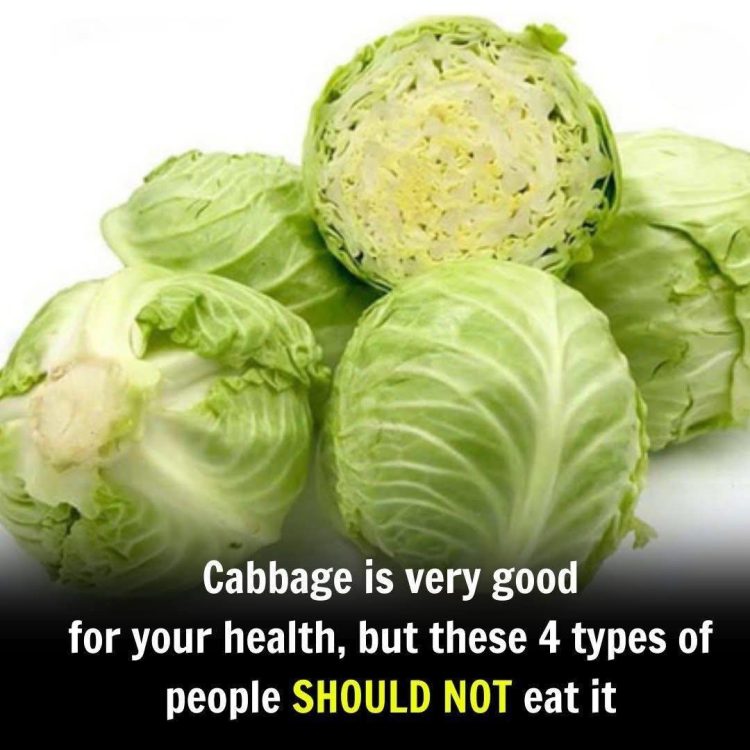Despite its many benefits, cabbage isn’t for everyone. Here are key groups that should limit or monitor their intake:
1. People with Hypothyroidism
Cabbage contains goitrogens, compounds that can interfere with iodine absorption and suppress thyroid function. While cooking reduces these compounds, people with hypothyroidism or iodine deficiency should:
-
Avoid raw or juiced cabbage
-
Limit intake to ½ cup cooked per day
-
Consult with a doctor for safe dietary planning
2. People with Cabbage Allergies
Though rare, cabbage allergies can cause:
-
Skin reactions
-
Respiratory issues
-
Gastrointestinal symptoms
Cross-reactivity with other cruciferous vegetables and birch pollen is possible. People with known allergies should avoid cabbage completely and consult an allergist.
3. Individuals with Digestive Sensitivities
Cabbage’s high fiber and prebiotic content may cause:
-
Gas
-
Bloating
-
Diarrhea
This is especially true for people with conditions like IBS or those unaccustomed to high-fiber diets. To reduce discomfort:
-
Introduce cabbage gradually
-
Prefer cooked over raw
-
Try fermented cabbage like sauerkraut for easier digestion
4. People on Blood Thinners (e.g., Warfarin)
Cabbage is high in vitamin K, which supports blood clotting and may reduce the effectiveness of anticoagulants. Those taking warfarin should:
-
Maintain consistent vitamin K intake
-
Monitor INR levels regularly
-
Discuss dietary changes with their healthcare provider
👶 Cabbage for Pregnant and Breastfeeding Women
-
Food use is generally safe.
-
Topical application of cabbage leaves can relieve breast pain during lactation.
-
Medicinal use or high doses during pregnancy should be discussed with a healthcare provider.
✅ Final Thoughts: Balance Is Key
Cabbage is a highly nutritious, affordable, and adaptable vegetable that offers an impressive range of health benefits—from fighting inflammation to improving heart health and digestion. However, for those with specific health conditions like thyroid disorders, allergies, or digestive issues, moderation and medical guidance are crucial.
By understanding both the benefits and risks, you can make informed choices about including cabbage in your diet—and enjoy everything this underrated superfood has to offer, safely and effectively.
